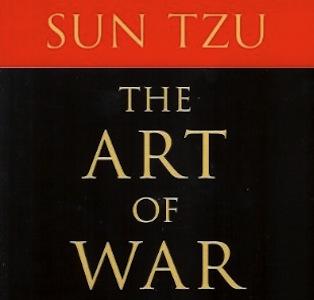The Art of War by Sun Tzu

The Art of War is an ancient Chinese military treatise created based on the rules of warfare of Sun Tzu, a prominent Chinese military strategist. Dating from 5th century BC, it incisively concludes the essential military strategy and tactics for battles. With the development of culture and society, it also has an increasing influence on various fields including military strategies, business tactics, and legal strategy in Eastern and Western countries.
The Art of War consists of 13 chapters categorized by varying process and situations of war, which provides specific solutions to deal with different hardships and problems. One of the famous quotes from the last verse of chapter three, “Strategic Attacks, –if you know your enemies and yourself, you can win a hundred battles without a single loss; if you only know yourself, but not your opponent, you may win or may lose; if you know neither your enemy nor yourself, you’ll always endanger yourself,” successfully describes the philosophy of winning a war, however, not just about the war. Digging into the deeper side of the verse, the quote can also be applied to business strategy and daily work. For instance, when making a negotiation between corporations, the corporation that is aware of its competitor’s weaknesses could exploit its rival and gain the upper hand; when preparing for tests, practicing previous tests is also a “knowing your enemy,” so that your passing rate could be increased to some extent. Therefore, the verses illustrated in the book could be vastly applied on various aspects or situations in daily life, not only in the battlefield, which fills the book with more inspiration and attractions.
As a definitive work of military strategy and tactics, The Art of War has made an enormous contribution to the military history of China and has widely spread to other Asian and Western countries such as Japan, North Korea and the United States. According to Tom Bissell, a book reviewer of The New York Times, a fiction that withstands time, does so, because it seems cleverly predictive or contains scenarios that feel “relevant” to later audiences. The Art of War which has aged over 2,500 years, is a profound historical treatise full of educational meaning and practical theories to the world.










